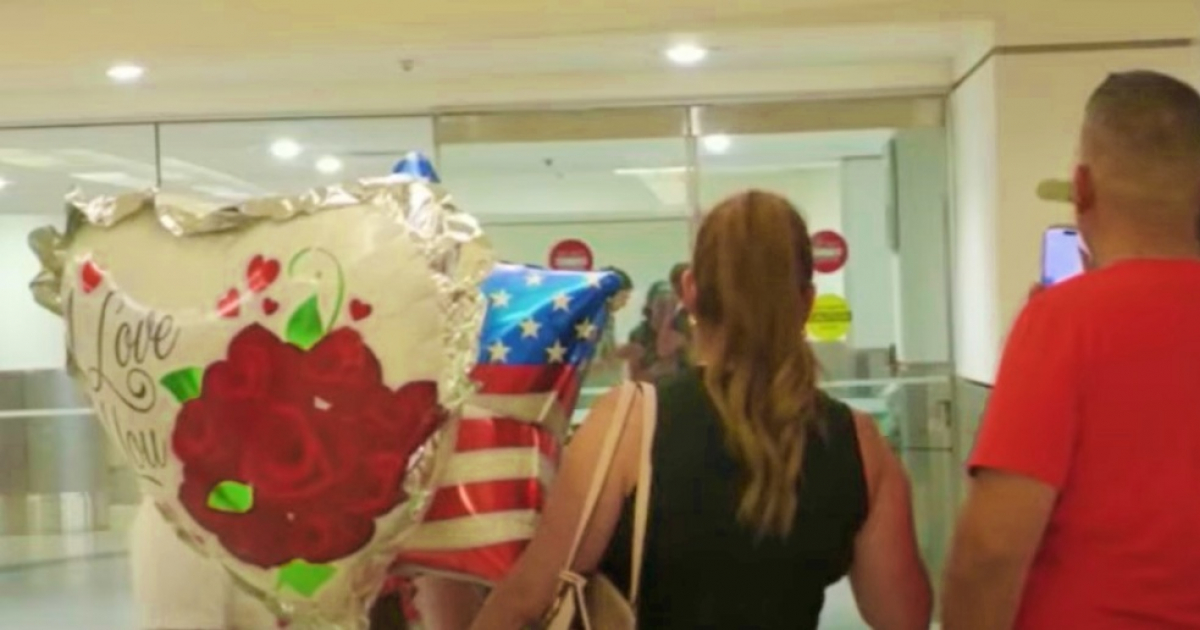The United States will allow individuals with pending travel authorizations under the humanitarian parole program to enter the country, provided their travel was approved before the program's temporary suspension announced on Friday. This update was reported by Martí Noticias, citing a spokesperson from the Department of Homeland Security (DHS).
This clarification came after beneficiaries with booked flights on airlines like American Airlines and Southwest were stranded at Cuban airports on Saturday, August 3, when they were denied boarding. Authorities stated they are collaborating with stakeholders, including airlines and sponsors, to resolve issues promptly and will continue to provide updates.
"As part of these efforts, some beneficiaries have been notified that their Advance Travel Authorization (ATA) status is denied," said a DHS spokesperson. "Individuals must have a valid ATA to travel to the U.S. under these processes. DHS is working to resume ATA processing with additional safeguards as soon as possible," they added.
Immigration officials, speaking anonymously, expressed surprise at the abrupt news, adding they processed only Haitian humanitarian parole beneficiaries that day. "Some immigration officers received orders to allow boarding from the countries of origin, while others were told the program was halted and to deny boarding," one source stated.
American Airlines declared, "We continue to comply with the Administration's Advance Travel Authorization Program, supporting customers entering the U.S. as part of this program." Meanwhile, Cuban families affected by the sudden decision have shown desperation. Many with approved travel permits who were set to travel on Saturday but were denied boarding are now questioning how their cases will be resolved despite the DHS's latest statement.
Temporary Suspension of Travel Permits for Humanitarian Parole Beneficiaries
On August 2, the U.S. government temporarily suspended travel permits for beneficiaries of the humanitarian parole program following an internal report revealing significant fraud levels, as reported by Fox News citing a DHS spokesperson. The government source indicated that "as a precaution," they have suspended issuing advance travel authorizations since mid-July while conducting a detailed review of sponsor applications, which are the focus of the fraud investigation.
The CBP ceased issuing travel authorizations to Venezuelans on July 6 and to Cubans, Nicaraguans, and Haitians on July 18.
The Report
The report was prepared by the Fraud Detection and National Security Directorate to ensure a swift response to fraud in immigration benefit programs. The internal document revealed that application forms included repeatedly used social security numbers, addresses, and phone numbers, sometimes even hundreds of times.
Parts of the report indicated that 100,948 forms were completed by 3,218 serial sponsors, identified as those whose number appears on 20 or more forms. Additionally, it was found that 24 of the 1,000 most-used numbers belonged to deceased individuals. Furthermore, around 100 postal addresses were used between 124 and 739 times across more than 19,000 forms, including storage units.
One sponsor’s phone number appeared on over 2,000 forms, and there were 2,839 forms with non-existent sponsor zip codes, according to the leak. Sponsors must undergo background and security checks and demonstrate financial resources to support the sponsored individual.
"The process for selection and background verification for advance travel authorizations is separate from the selection and verification process for supporters residing in the U.S.," the spokesperson mentioned. "DHS has not identified any concerning issues related to beneficiary background checks," they added.
The spokesperson announced that processing would restart as soon as possible "with appropriate safeguards," though no specific date was given for the resumption of travel permits under the humanitarian parole program.
The Humanitarian Parole Program
The program was initially announced for Venezuelans in October 2022, allowing a limited number to travel directly to the U.S., provided they had not entered illegally, had a sponsor in the U.S., and passed certain checks. In January 2023, the Biden administration expanded the program to include Haitians, Nicaraguans, and Cubans, permitting up to 30,000 people per month to enter the U.S.
The program allows migrants to receive work permits and a two-year authorization to live in the United States. As of late June, 106,757 Cubans had benefited from the program, with around 104,130 having already traveled to U.S. territory, according to official CBP figures.
A lawsuit challenging the program was dismissed earlier this year, but the Republican states that filed it have indicated they plan to appeal.
Key Questions About the Humanitarian Parole Program Suspension
Below are some frequently asked questions about the recent suspension of the humanitarian parole program and its implications.
Why was the humanitarian parole program suspended?
The program was suspended due to an internal report revealing significant levels of fraud, particularly in sponsor applications.
Who is affected by the suspension?
The suspension affects beneficiaries from Venezuela, Cuba, Nicaragua, and Haiti who have pending travel authorizations.
What is the U.S. government doing to address the issue?
The DHS is working with airlines, sponsors, and other stakeholders to resolve the issues and plans to resume processing with additional safeguards as soon as possible.
When will the program resume?
No specific date has been provided for the resumption of the program, but DHS aims to restart processing as soon as possible with proper safeguards in place.
